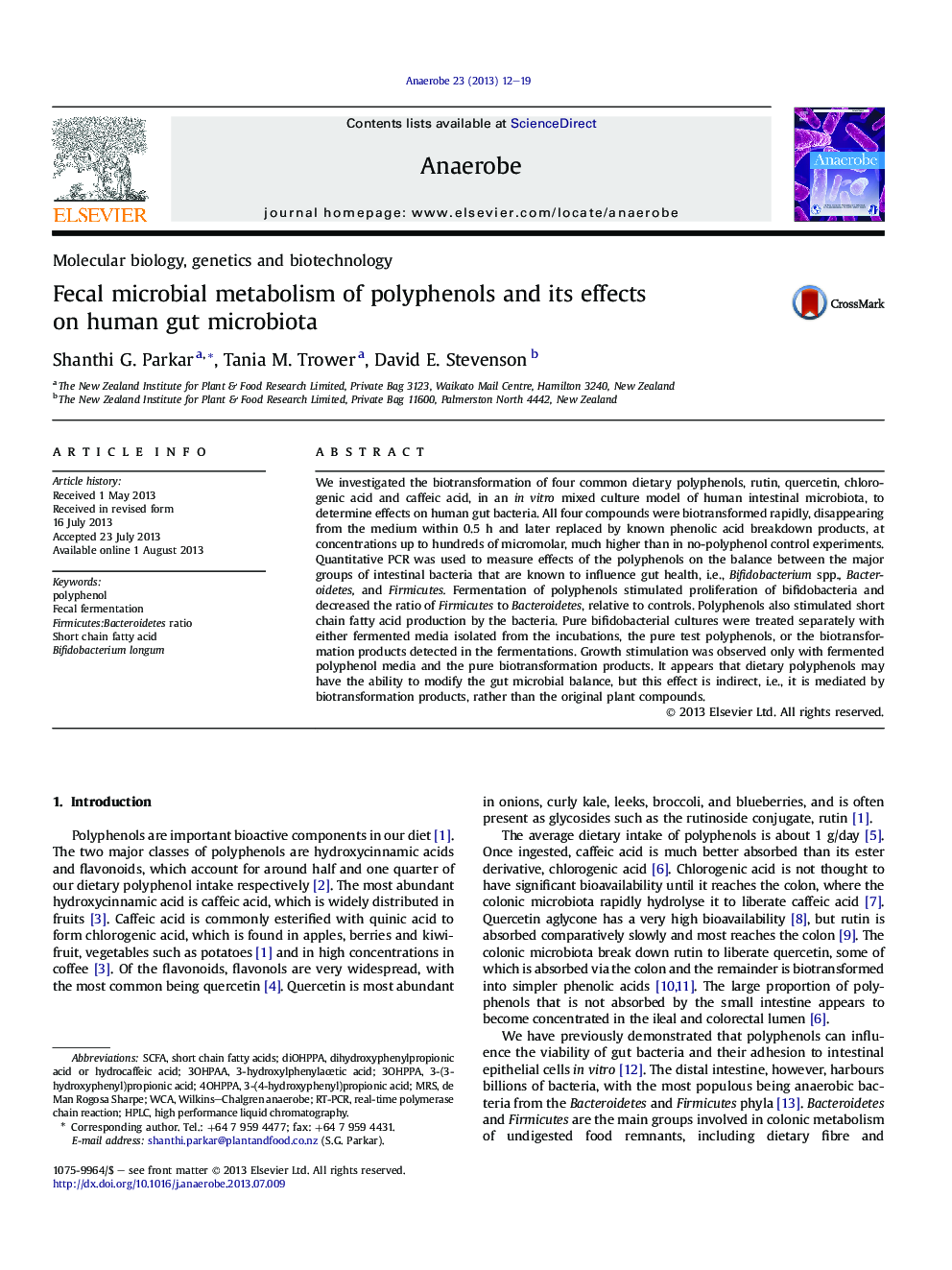| Article ID | Journal | Published Year | Pages | File Type |
|---|---|---|---|---|
| 3395194 | Anaerobe | 2013 | 8 Pages |
•We incubated four dietary polyphenols with human fecal bacteria.•Fermenta was rich in short-chain fatty acids such as butyrate.•Fermentation increased bifidobacteria and decreased Firmicutes:Bacteroides ratio.•Metabolites in the fermenta also specifically increased bifidobacterial growth.•Metabolites included 3-hydroxyphenylacetic acid and 3-hydroxyphenylpropionic acid.
We investigated the biotransformation of four common dietary polyphenols, rutin, quercetin, chlorogenic acid and caffeic acid, in an in vitro mixed culture model of human intestinal microbiota, to determine effects on human gut bacteria. All four compounds were biotransformed rapidly, disappearing from the medium within 0.5 h and later replaced by known phenolic acid breakdown products, at concentrations up to hundreds of micromolar, much higher than in no-polyphenol control experiments. Quantitative PCR was used to measure effects of the polyphenols on the balance between the major groups of intestinal bacteria that are known to influence gut health, i.e., Bifidobacterium spp., Bacteroidetes, and Firmicutes. Fermentation of polyphenols stimulated proliferation of bifidobacteria and decreased the ratio of Firmicutes to Bacteroidetes, relative to controls. Polyphenols also stimulated short chain fatty acid production by the bacteria. Pure bifidobacterial cultures were treated separately with either fermented media isolated from the incubations, the pure test polyphenols, or the biotransformation products detected in the fermentations. Growth stimulation was observed only with fermented polyphenol media and the pure biotransformation products. It appears that dietary polyphenols may have the ability to modify the gut microbial balance, but this effect is indirect, i.e., it is mediated by biotransformation products, rather than the original plant compounds.
